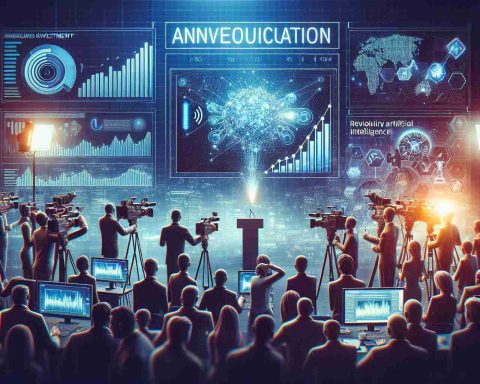Researchers at Texas University have developed a cutting-edge artificial intelligence program that accurately predicts a significant number of earthquakes during a trial in China, offering a breakthrough in disaster preparedness.
The artificial intelligence system has been trained to analyze seismic data with remarkable precision, showcasing its effectiveness by topping an international competition.
According to the creators of the program from the University of Austin, the algorithm correctly forecasted about 70% of earthquakes a week in advance during a seven-month trial in China.
The artificial intelligence has been engineered to detect statistical irregularities in seismic data in real-time. During the experiment, it provided weekly predictions, successfully anticipating 14 earthquakes within a 500-kilometer radius of the predicted locations, along with almost precise magnitude estimations. It missed one earthquake but issued eight false alerts.
While it remains uncertain whether the same approach will be effective in other regions, this endeavor marks a pivotal advancement in earthquake prediction research. Sergey Fomel, a professor at the Bureau of Economic Geology and member of the research team, stated: “Earthquake prediction is the holy grail. We are still far from making predictions for any point on Earth, but what we have achieved tells us that what we once thought as an insurmountable challenge is fundamentally solvable.”
Revolutionizing Earthquake Prediction with AI: Advancements and Challenges
Researchers at Texas University made headlines with their cutting-edge artificial intelligence program that demonstrated success in predicting earthquakes during trials in China. While the groundbreaking development shows promise in enhancing disaster preparedness, there are important questions and challenges associated with the revolutionization of earthquake prediction using artificial intelligence.
Key Questions:
1. Can the AI system’s success in China be replicated in other earthquake-prone regions worldwide?
2. How will governments and organizations integrate AI technology into existing earthquake monitoring systems?
3. What ethical considerations need to be addressed in utilizing AI for earthquake prediction?
Answers and Challenges:
1. Replicating Success: The effectiveness of the AI program in other regions depends on the uniqueness of seismic data patterns. Further research is needed to adapt the algorithm to different geological settings worldwide.
2. Integration Challenges: Incorporating AI into current earthquake monitoring infrastructure requires seamless integration and data sharing protocols to ensure timely and accurate predictions are utilized in disaster preparedness strategies.
3. Ethical Considerations: Privacy concerns, data security, and transparency in decision-making processes are crucial factors that must be carefully managed when deploying AI for earthquake prediction to prevent misuse or bias.
Advantages and Disadvantages:
– Advantages:
– Enhanced Prediction Accuracy: AI algorithms can analyze vast amounts of seismic data quickly, potentially improving the accuracy of earthquake predictions.
– Early Warning Systems: Real-time detection of seismic irregularities can provide valuable time for evacuation and preparedness measures in earthquake-prone areas.
– Disadvantages:
– False Alerts: The AI system issued eight false alerts during the trial in China, indicating the potential for unnecessary panic or complacency if not carefully managed.
– Regional Variability: The effectiveness of AI predictions may vary across different geological regions, posing challenges in scalability and reliability.
This groundbreaking research underscores the evolving role of artificial intelligence in enhancing earthquake prediction capabilities. While the advancements offer significant benefits, addressing key challenges and ethical considerations is essential to maximize the potential of AI in revolutionizing earthquake prediction globally.
For more information on earthquake monitoring and research, visit University of Texas.

















